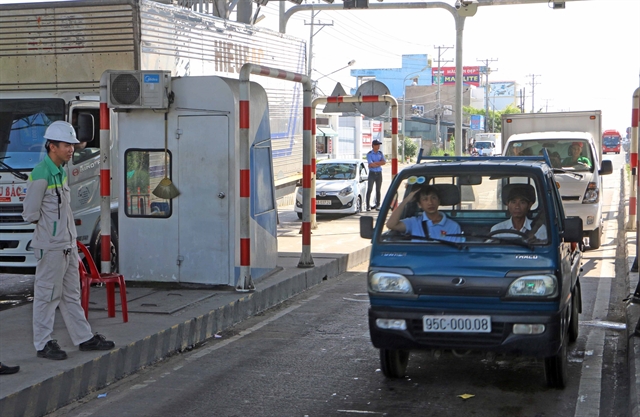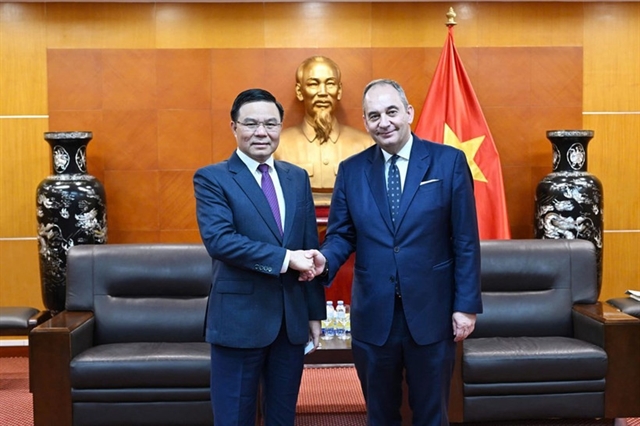 Economy
Economy


|
| Vehicles move through the automatic toll collection lane at the Cần Thơ-Phụng Hiệp BOT (build-operate-transfer) tollbooth. — VNA/VNS Photo Thanh Liêm |
HÀ NỘI — Experts discussed solutions to improve the quality and efficiency of auditing public-private partnerships (PPP) during a conference on Tuesday in Hà Nội.
“PPP projects and the role of the State Audit” was organised by the State Audit of Vietnam (SAV).
Speaking at the conference, Professor Đoàn Xuân Tiên, deputy general auditor of the SAV, said that capital from the private sector had contributed significantly to improving transport infrastructure and urban areas.
PPP projects helped ease the burden on the State budget, created a motion for socio-economic development and improved the economy’s competitiveness.
However, management still had many shortcomings, he said.
The selection process had failed to select qualified and experienced investors. Besides, investors’ capital contributions were often still late, but they were not held to account.
Deputy head of the Quảng Bình Province National Assembly delegation Nguyễn Ngọc Phương said one of the reasons leading to losses, waste and challenges on PPP projects was lack of inspections and auditing.
Most audited build-operate-transfer and build-transfer projects were implemented under the form of contractor appointment, which led to less competition and transparency in investor selection.
Offering solutions to these problems, former deputy chairman of the Economic and Budgetary Commission of the 11th National Assembly and also chairman of the Vietnam Accounting and Auditing Association Đặng Văn Thanh said the National Assembly should issue the Law on PPP soon.
In addition, the State should focus on researching and selecting potential projects.
It should strengthen supervision of projects on the principle of respecting the State’s and investors’ agreements.
To make PPP projects operate effectively, it was necessary to promote the role of auditing, he said.
Experts at the conference agreed that the State Audit played an important role. Both detecting flaws and loopholes in current law enforcement, and actively researching proposals to adjust, supplement and replace outdated regulations, would fill in the gaps related to PPP. — VNS




